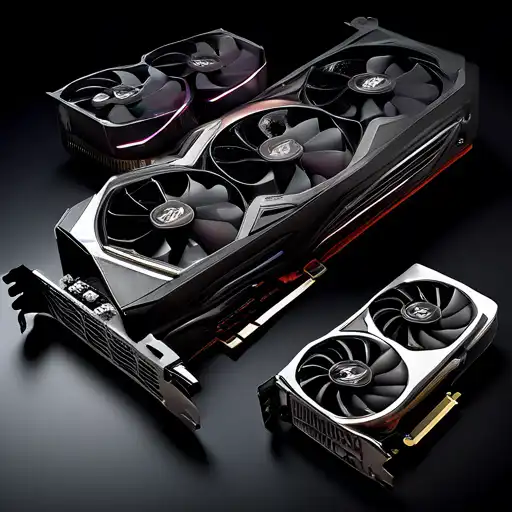Introduction to Choosing the Right GPU for Gaming
Choosing the right GPU (Graphics Processing Unit) is crucial for an optimal gaming experience. The GPU is responsible for rendering images, animations, and video for the computer's screen. A powerful GPU can significantly enhance your gaming experience by providing smoother gameplay and higher resolution graphics. This guide will help you understand the key factors to consider when selecting a GPU for gaming.
Understanding GPU Specifications
Before diving into the selection process, it's important to understand the specifications that define a GPU's performance. These include:
- Core Clock Speed: Measured in MHz, this indicates how fast the GPU's core operates.
- Memory: The amount of VRAM (Video RAM) is crucial for handling high-resolution textures and complex scenes.
- Memory Bandwidth: This affects how quickly the GPU can access the VRAM.
- CUDA Cores or Stream Processors: These are the processors within the GPU that handle the graphics rendering.
Matching the GPU to Your Gaming Needs
Not all games require the same level of GPU performance. Here's how to match the GPU to your gaming needs:
- Casual Gaming: For less demanding games, a mid-range GPU with 4GB to 6GB of VRAM is sufficient.
- High-End Gaming: For the latest AAA titles at high settings, look for a high-end GPU with 8GB or more of VRAM.
- VR Gaming: Virtual reality games require a powerful GPU with high frame rates to prevent motion sickness.
Considering Your Budget
GPUs come in a wide range of prices, from budget-friendly options to high-end models costing thousands of dollars. It's important to balance performance with your budget. Remember, the most expensive GPU isn't always the best choice for your specific needs.
Future-Proofing Your Investment
Technology evolves rapidly, and today's high-end GPU may become obsolete in a few years. Consider future-proofing your investment by choosing a GPU that exceeds your current needs, allowing you to enjoy upcoming games without immediate upgrades.
Compatibility with Your System
Ensure the GPU you choose is compatible with your system's motherboard, power supply, and case size. Check the GPU's dimensions, power requirements, and the available slots on your motherboard.
Conclusion
Selecting the right GPU for gaming involves understanding your gaming needs, budget, and system compatibility. By considering these factors, you can choose a GPU that provides the best gaming experience for your setup. For more tips on optimizing your gaming setup, check out our guide on gaming setup optimization.
